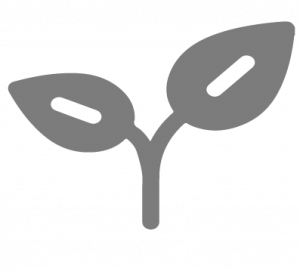The Union Agriculture and Farmers Welfare Minister, Shri Narendra Singh Tomar, has emphasized the need to identify and document the vast number of indigenous livestock breeds in India to promote prosperity in the Agriculture and Animal Husbandry sector. The Indian Council of Agricultural Research (ICAR) has launched a campaign to document all animal genetic resources in the country in collaboration with other agencies. Recently, at a ceremony organized by ICAR, breed registration certificates for 28 newly registered breeds were distributed, including cattle, pig, buffalo, goat, dog, sheep, donkey and duck breeds.
Overview
Since 2019, DARE has been notifying all registered breeds in the Gazette to claim sovereignty over these breeds. Conserving India’s cultural and genetic diversity is crucial for sustainable development in the Agriculture and Animal Husbandry sector.
The identification and documentation of indigenous livestock breeds in India can benefit farmers by preserving rare and unique breeds with special qualities, maintaining genetic diversity and reducing the dependence on dominant breeds. It can also provide a scientific basis for breeding programs, lead to higher productivity and income and increase recognition and value for indigenous breeds as high-quality products. This can contribute to the sustainable development of the Agriculture and Animal Husbandry sector in India, and have positive impacts on the livelihoods of farmers.
Important points
- Shri Narendra Singh Tomar stresses the importance of identifying and documenting indigenous livestock breeds in India for the Agriculture and Animal Husbandry sector’s prosperity.
- Almost 50% of the country’s livestock is unclassified and identifying these unique breeds is crucial for their preservation.
- ICAR has initiated a campaign to document all animal genetic resources in collaboration with state universities, Animal Husbandry Departments, NGOs, and other agencies.
- 28 newly registered breed certificates were distributed at the Ceremony for Distribution of Animal Breed Registration Certificates organized by ICAR.
- DARE began notifying all registered breeds in the Gazette in 2019 to claim sovereignty over indigenous breeds.
- India’s livestock and poultry sector is globally recognized for its diversity and its genetic preservation efforts have received international recognition from the Food and Agriculture Organization (FAO).
Conclusion
In conclusion, identifying and documenting indigenous livestock breeds in India is crucial for the sustainable development of the Agriculture and Animal Husbandry sector. This will not only contribute to the conservation of India’s cultural and genetic diversity but will also benefit farmers by providing them with unique breeds adapted to their local climatic conditions. The efforts made by the Indian Council of Agricultural Research (ICAR) to document all animal genetic resources in collaboration with state universities, Animal Husbandry Departments, NGOs and other agencies will pave the way for the preservation of these indigenous breeds. The distribution of breed registration certificates at the Ceremony for Distribution of Animal Breed Registration Certificates organized by ICAR is a positive step towards this goal. The efforts to preserve the genetic diversity of India’s livestock and poultry sector have already been recognized by the Food and Agriculture Organization (FAO) at the international level.
Note: The information contained herein is for informational purposes only. Nothing herein shall be construed to be financial or legal advice. Pesticides are a considerable risk of loss in crops and viewers are advised to do their own research before making any decisions.





